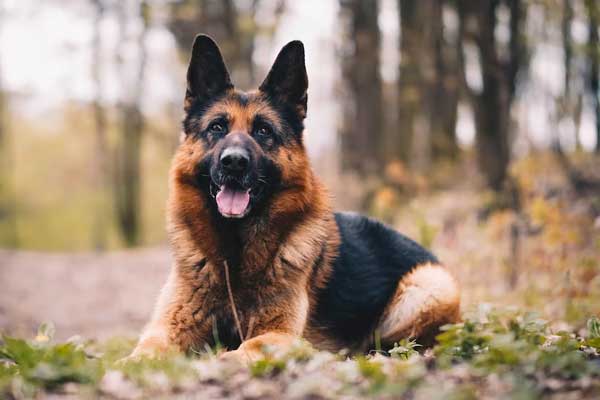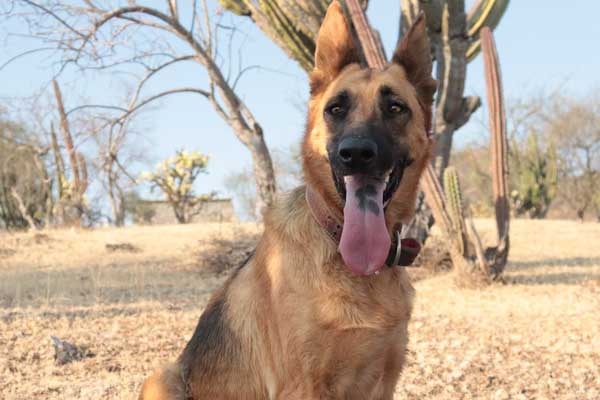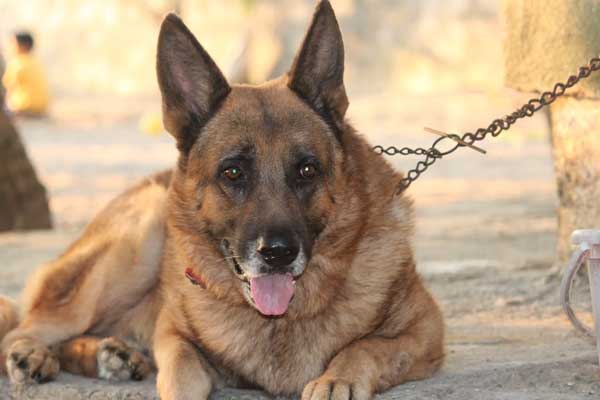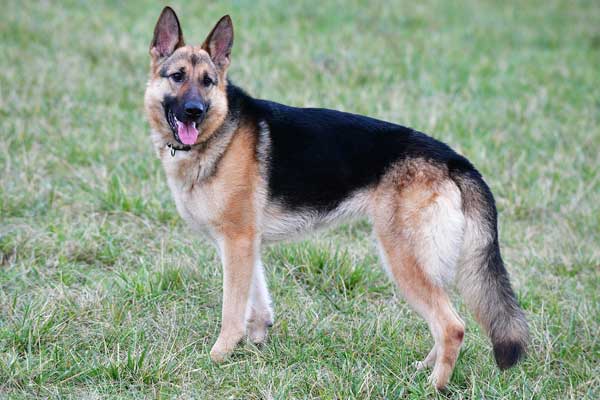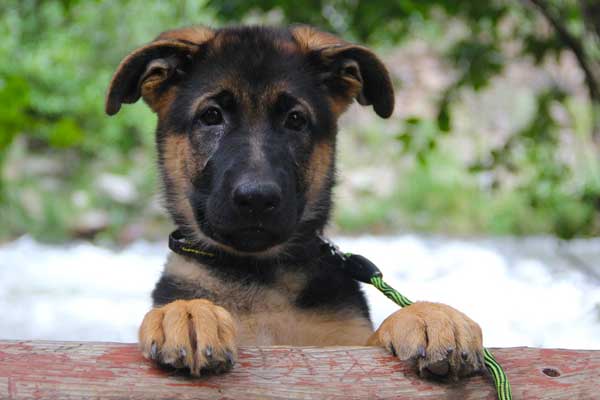Are German Shepherds High Maintenance: Discover the Facts & Understand the Challenges
Are German Shepherds high maintenance? This is a common question from prospective owners of this popular breed.
After all, with their intelligence and loyalty, German Shepherds are popular dog breeds worldwide. But before you commit to bringing a German Shepherd into your life, it’s essential to understand what makes them unique and what kind of care they require.
In this article, we’ll explore why people love these dogs so much and how to ensure they stay healthy and happy by providing them with the right amount of exercise, grooming, training, and health care.
If owning a German Shepherd will be worth it in the long run, read on!
Are German Shepherds High Maintenance
German Shepherds may be considered low-maintenance regarding grooming, healthcare, and dietary needs, but they require extra attention regarding socialization, training, and mental stimulation. Therefore, while German Shepherds may not be the most high-maintenance dog, they need more care than other breeds in certain areas.
German Shepherds Personality
The German Shepherd is a well-known dog for its intelligence and loyalty. They are brilliant, courageous, and confident animals loyal to their owners. These dogs are often used as working dogs but can also make great family pets.
German Shepherds require plenty of exercise and mental stimulation, as they can quickly become bored if not given enough attention or activities. They tend to be protective of their families and bark at strangers or other animals entering the home.
What Makes a High Dog Maintenance
High-maintenance dogs often require extra care and attention regarding grooming and health. These dogs may have longer fur requiring regular brushing and trimming to keep it neat and free from mats or tangles.
They may also need baths more frequently than other breeds with shorter coats. They can be prone to skin issues, so regular vet visits and proper nutrition are also important.
High-maintenance dogs may also require more mental stimulation than other breeds. They can be prone to boredom or anxiety if not provided with enough activities or challenges to keep them busy.
Walks, playtime, and interactive toys all help to keep these high-energy dogs from getting restless.
How to Care for a German Shepherd
Caring for a German Shepherd is an important responsibility and requires dedication, love, and attention. Here are some crucial tips on how to properly care for your GSD pup or adult dog:
Feeding your German Shepherd a nutritious diet is crucial to their health. Ensure you provide them excellent quality food containing all the vitamins and minerals they need at each stage of life – puppy, adult, or senior age. Additionally, make sure they have access to fresh water at all times!
House training is essential when it comes to caring for your GSD pup. Be consistent with house rules so that they understand what behaviors are expected from them to live happily within the home environment.
Socialization should begin as soon as possible after bringing home your new pup! Take them out into public spaces like parks or pet stores so that they can safely interact with different people & animals under your supervision. This will help prevent potential aggressive behavior towards strangers in later life stages if introduced correctly early on.
Exercise is essential for German Shepherds. Make sure you take them out for walks/jogs several times a day and allow them to get their energy out through playtimes (fetch, tug of war, etc.). This will help keep their minds & bodies healthy and strong.
Keep playtimes fun and engaging for your GSD pup. Teach them basic obedience commands, hide & seek games, agility courses, or puzzles to stimulate their minds. Mental stimulation is just as important as physical! This will help prevent boredom and destructive behaviors from occurring in older age.
Provide a comfortable bed for your GSD pup to sleep on that is supportive enough to prevent joint problems in older age. Allow them to access their space when needed, and ensure they understand their sleeping area’s boundaries. This will help them feel safe & secure at night.
Prevent separation anxiety by creating positive associations before leaving & coming home from outings or workdays. Please give them a special treat, toy, or petting session when you go to let them know you will come back! This will help them feel safe and secure even when alone.
Lastly, care for your GSD’s coat, teeth, ears & nails as needed. Regular brushing and trimming nails are essential to maintain healthy skin and fur. Clean debris from their ears if needed, brush their teeth periodically throughout life stages, and take them to the vet regularly for checkups & vaccinations. This will help keep your GSD’s overall health in check.
How Much Exercise, Grooming, and Training Does a German Shepherd Need
German Shepherds make excellent companions and need plenty of physical activity, grooming, and training to stay healthy and happy.
Exercise is essential for a German Shepherd’s overall well-being; it helps keep them fit and strong and provides mental health stimulation. A good daily walk or run for an hour or more is recommended.
German Shepherd Exercise Needs
German Shepherds are an active breed that needs a lot of physical activity daily. It’s recommended that they get at least 30 minutes to 1 hour of vigorous exercise each day, such as running or playing fetch in an open area where they have plenty of room to move around freely.
Additionally, owners must provide mental stimulation with activities such as agility courses or obedience classes that help keep them mentally sharp while providing extra physical activity.
German Shepherd Grooming Needs
Regarding grooming needs, German Shepherds only require a little maintenance besides regular brushing since their thick double coat sheds heavily throughout the year.
They should be bathed every few months using a mild shampoo or as needed if they get dirty. Additionally, their nails should be clipped once a month, and their ears should be checked regularly.
German Shepherd Training Needs
Training is also essential for German Shepherds since they are an intelligent breed that can easily pick up on commands. It’s recommended to start with basic obedience training when puppies are young and progress to more advanced commands as they age.
Continuing training throughout their lifetime is also essential, as it will help them stay obedient and well-behaved. Additionally, German Shepherds’ socialization with other animals and people is necessary to help them learn how to behave appropriately in public settings.
German Shepherd Health Problems
German Shepherds can be prone to specific health problems that must be considered when caring for them. Common German Shepherd health problems include hip dysplasia, elbow dysplasia, gastric dilatation and volvulus (bloating), degenerative myelopathy, and eye conditions. It is essential to understand these issues so that you can take steps to ensure your pet’s well-
Hip Dysplasia
Hip dysplasia happens when the ball and socket joints of the hips don’t fit properly. It can lead to pain in affected dogs and arthritis if left untreated.
Signs of hip dysplasia may include difficulty going up or down stairs, limping after exercise or jumping on furniture/beds, reluctance to move or walk far distances, decreased activity levels, or stiffness when standing up from a lying position.
If you suspect your German Shepherd has hip dysplasia, you must take them for a checkup with your vet immediately so this can be diagnosed correctly and treated appropriately.
Elbow Dysplasia
Elbow dysplasia happens when the elbow joint does not develop correctly. This can lead to pain, lameness, and even arthritis if left untreated.
Signs of elbow dysplasia may include reluctance to play or exercise due to discomfort from movement or play, limping after running or jumping on furniture/beds, decreased activity levels, or stiffness when standing up from a lying position.
Suppose your German Shepherd is exhibiting any of these symptoms. You must immediately take them for a checkup with your veterinarian to identify the cause and receive appropriate treatment.
Gastric Dilatation and Volvulus (Bloating)
Gastric dilatation and volvulus (bloating) can be severe in German Shepherds. It occurs when the stomach becomes over-distended with gas, fluid, or food and rotates within the abdomen, resulting in pain and discomfort for your pet.
Symptoms of this condition may include excessive drooling/salivation, abdominal bloating/swelling, retching/dry heaving, weakness, or lethargy.
If you see any of these symptoms in your German Shepherd, you must take them to the vet immediately, as this condition can be life-threatening if left untreated.
Degenerative Myelopathy
Degenerative myelopathy is a progressive neurological condition that affects German Shepherds. If left untreated, it causes muscle weakness and atrophy in the affected dogs’ hind legs, leading to problems with balance, coordination, and mobility.
Signs of this condition may include difficulty rising from a resting position, wobbliness when walking or running, and dragging of the hind feet. Suppose your German Shepherd is displaying any of these symptoms.
Taking them for a checkup with your vet is essential for an accurate diagnosis and appropriate treatment.
Eye Problems
Eye problems are common in German Shepherds and range from mild to severe. Common eye conditions affecting this breed include cataracts, progressive retinal atrophy (PRA), and glaucoma.
Symptoms of these conditions may include:
- Cloudy or hazy vision.
- Redness of the eyes.
- Dilated pupils.
- Squinting or rubbing at the eyes.
- Pawing or scratching at the eyes.
- Excessive tearing.
Suppose your German Shepherd is exhibiting any of these signs. In that case, you must check up with your veterinarian as soon as possible to receive appropriate treatment and help keep your vision healthy.

